Simon Calder at 25: The most impressive travel authorities
Over the past two-and-a-half decades I have met many impressive men and women who have helped to give the UK the best travel industry in the world.
Among them are 25 “travel heroes” whose expertise and energy have improved life for travellers. In the third of a five-part series, here are the most impressive travel authorities.
Each has provided a travel tip and a happiest travel memory.
Farina Azam, partner, head of commercial, TravLaw
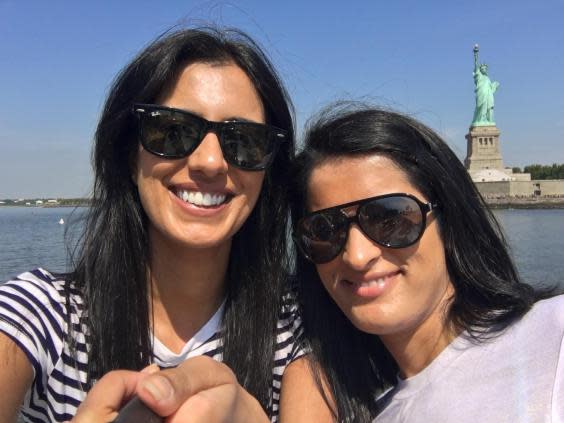
One of the trade journal TTG’s “30 under 30: Tomorrow’s Travel Leaders”. No, not me – Farina. She puts me right on legal matters, as well as being one of the rare people who can explain the Atol rules, the package travel regulations and European air passengers’ rights, to make them understandable to journalists as well as normal people.
Travel tip: “Being a lawyer, I’m relatively risk averse as you can imagine! So two tips from me – book a package holiday as this will provide you with financial and legal protection you may not get otherwise, and always buy travel insurance.”
Happiest travel memory: “It has to be when I visited New York a couple of years ago with my sister. Since we see so much of New York on the TV and in movies, it felt surreal when I finally went there. It didn’t disappoint either – it has such a buzz, and the sight-seeing, food and shopping was all amazing. One of my highlights was going on a boat trip to see the Statue of Liberty – and we managed to get a great selfie!”
Philip Baum, editor-in-chief, Aviation Security International
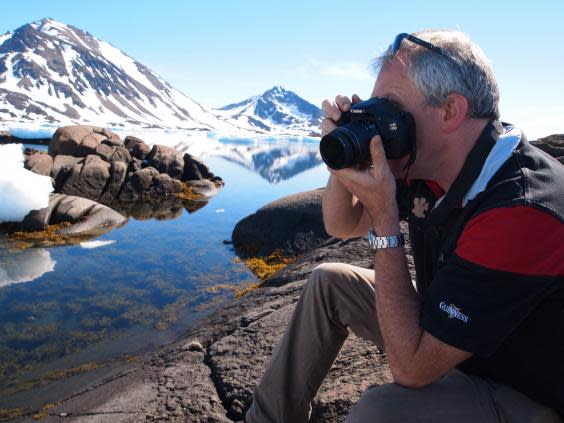
In the 1990s airport security screeners waved through Swiss army knives and liquids by the litre, while passengers who asked were welcomed on to the flight deck by pilots. The horror of 9/11 exposed the weaknesses of aviation security, while the “liquid bomb plot” of 2006 triggered yet more restrictions.
Philip’s vast experience and unwavering focus on keeping passengers and crew safe leads him to conclude that formulaic security procedures are not enough to keep us safe. Look at the person, not just their possessions, he says: “Behavioural analysis is far more effective than any screening technology, so if you see something unusual, report it.”
Travel tip: “Never pre-order a special meal on a flight if you are hoping to get an upgrade.”
Happiest travel memory: “The Masai Mara. The perfect family experience. Nature at its finest, wildlife at its most accessible and turning one off zoos for life. Staying in safari tents, being escorted to a camp fire for evening meals, Masai tribesmen walking us down to a watering hole to breakfast with the hippos, and bone-shaking 4x4 rides to meet a host of animals living in their natural habitat. And yet our daughters were still able to serenade us with their version of songs by Mika late at night, whilst zebras looked on confused. Plus, I like warthogs! They always bring a smile to my face...and warthogs are there in an abundance.”
Dr Todd Curtis, CEO, AirSafe.com
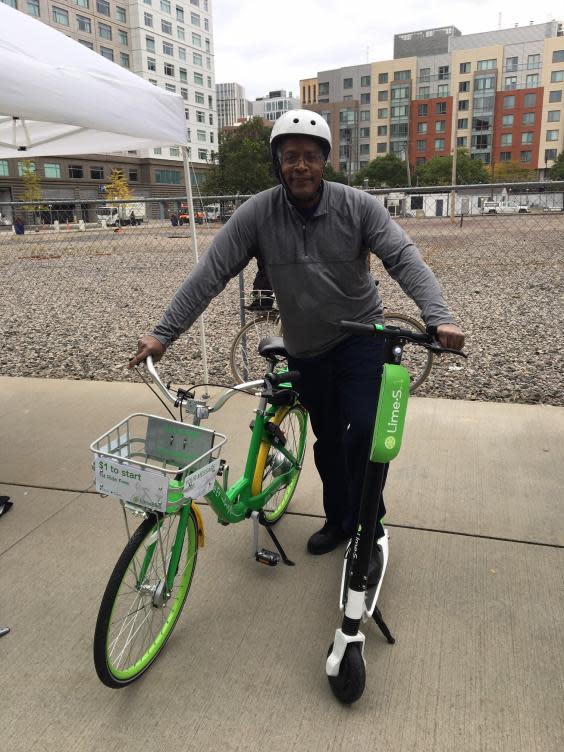
In the wake of the mass murder of 9/11, in which civil airliners were used as terrorist weapons, Dr Curtis reminded me: “The average passenger has a level of fear associated with mishaps during air travel that is very high relative to other risks.” In the early days of the internet, 1996, he set up AirSafe.com to aggregate the data on plane crashes – as well as providing invaluable information on airline safety and helping address fear of flying.
Travel tip: “If you are a frequent visitor to and from the USA, take advantage of programs such as TSA PreCheck, Registered Traveller, Global Entry or Nexus to have time-saving bonuses like quicker security lines and quicker processing through passport control.”
Happiest travel memory: “A visit to Axum, Ethiopia where a combination of ancient obelisks, historical cathedrals, and archaeological ruins made it a fascinating and educational experience for myself and my family, especially my son. We were reminiscing the other night about that visit, and the memories are still vivid for us both.”
Mark Smith, author and The Man in Seat 61
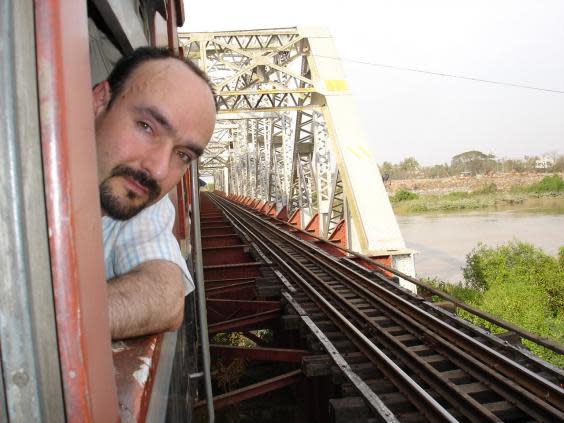
The first job of the man who has made international rail travel accessible was working in the Beaconsfield branch of Waitrose. Happily for the travelling community, Mark ran away to join the circus – “or as we called it in those days, British Rail,” he says. He was stationmaster at London’s Charing Cross, London Bridge and Cannon Street stations, and later regulated fares and ticketing for the Department for Transport. In 2007, though, he ran away to run Seat61.com full time, so that you can find out in seconds how to travel the traditional way by rail and sea to Paris or track down the only passenger train in Colombia (a tourist service from Bogota to the “salt cathedral” of Zipaquira).
Travel tip: “Never travel without a good book and a corkscrew.”
Happiest travel memory: “Staggering from ferry terminal to station in Niigata, Japan, with a heavy pack through a highway-and-liquor-store environment in the summer heat and humidity. I couldn’t take a taxi as I had no yen and there was no exchange desk or ATM at the ferry terminal.
“At first glance that might not sound such a great memory – but it was. I’d made it from London to Japan by Trans-Siberian Railway via Moscow and Vladivostok: no airports, no flights, just train and ferry. It had taken almost two weeks. Every so often I’d see a Japanese road sign indicating the road to Tokyo and I’d once more realise what I’d done and I’d burst out laughing.”
Jane Wilson-Howarth, physician, author, zoologist and travel health expert
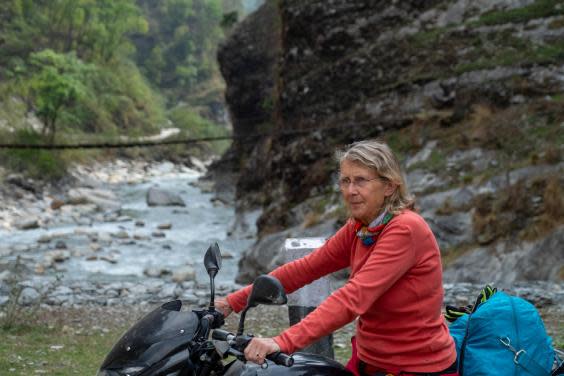
From the benignly sanitary perspective of the UK, the rest of the world may look unfit for human habitation. Agreed, as soon as you leave the green and pleasant lands of the British Isles, the range and degree of potential health hazards rises. Fortunately, Jane spends her life helping travellers avoid anything from altitude sickness to gastric upsets of Montezumal proportions.
Travel tip: “Carry a squirty water bottle – it is useful for powering water into a graze to clean up after a tumble and if caught short without loo roll it can even be used to clean up down below.”
Happiest travel memory: “The clinic was unusually quiet one afternoon and Sara, a talented Médecins du Monde translator from Algeria with a PhD in pharmacology, suggested we took a stroll around the camp. At the draughty wash-block we were spotted by one of our wilder regulars at the clinic: a young Palestinian man with TB whom we were sure was doing drugs. I’d sutured a laceration on his arm that looked like a knife wound.
“He pressed us to eat in his tent where his recently adoptive mother welcomed us and made tea. During the war the elderly woman and her husband had lost two sons as well as two homes in two countries but had given sanctuary and guidance to two wild boys. A toddler from the neighbouring tent also seemed to regard their home as his. Sitting on a piece of threadbare carpet sipping sweet black tea I felt she was mothering me too.
“I was exhausted by all I’d seen and heard in the camps but was moved by the family’s warmth and generosity of spirit. There, in a not-quite-weatherproof tent with the toddler on my lap, we shared our stories and we laughed about the naughtiness of children and the awfulness of camp food and the laziness of the camp mullah. They made me feel like I too was part of their family.”

